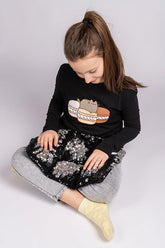Trending Now
Popular Products
Classic Kerchief in Bamboo Towelling
- £11.99
- £11.99
- (-0%)
- Unit price
- / per
-
Teal
-
Burgundy
-
Grey
-
Navy
- Berry
Kes-Vir Men's Swim Wrap Shorts
- £76.99
- £76.99
- (-0%)
- Unit price
- / per
Two Tone Sequin Weighted Lap Pillow
- from £35.99 (£43.19 inc VAT)
- from £35.99 (£43.19 inc VAT)
- (-0%)
- Unit price
- / per
-
Navy
-
Black
-
Pink
Need Help?
Email Us
Toilet Training Advice: Practical Steps for SEN/ALN
Toilet training can take longer when children find body signals hard to notice, new routines tricky, or bathrooms overwhelming. A short, predictable plan with the right supports can make things calmer and more successful.
Safety note: If there is pain on wee/poo, blood, fever, constipation (hard stools, straining, soiling) or sudden changes in toileting, seek medical advice. This page offers general guidance only.
Who this can help
- Children and young people who miss body signals or leave it late
- Those who find bathrooms noisy, echoey or bright
- Families building a consistent routine at home, nursery or school
Quick wins
- One change at a time: pick daytime first; keep nights as-is until days are steady.
- Same steps, same words: “toilet → pants down → sit 2 mins → wipe → flush → wash → sticker”.
- Use timing: offer regular sits (e.g., on waking, after meals, before going out) rather than waiting for last-second dashes.
- Make the room calmer: softer light, door part-open, pre-warn about hand dryers; keep the route clear.
- Keep sessions short: 2–3 minutes with a visual timer, then finish positively even if nothing happens.
Set up for success
- Potty or toilet? Choose what the child will use most (home/school). If toilet, add a seat reducer and a stable step so feet are supported.
- Clothing: simple pull-ups or elastic-waist clothes speed things up; avoid tricky fastenings while learning.
- Visuals & cues: a picture strip near the toilet; a first–then card (first toilet, then story).
A simple daytime plan
- Offer chances, don’t force: invite to sit at routine times and before leaving the house.
- Short sit with timer: 2–3 minutes; calm hands (quiet fidget is fine).
- Celebrate attempts: praise sitting, wiping, washing — not just wee/poo.
- Accidents are information: note the time; offer the toilet slightly earlier next time.
- Stay consistent across settings: share the script with nursery/school.
Spotting body signals (interoception)
- Use a simple body-signal check (“tummy tight? wiggly legs? do you need the toilet?”) every hour.
- Build predictable drink/meal times to make signals easier to notice.
Sensory tweaks that help
- Sound: warn before flush; allow hands over ears; use quieter bathrooms where possible.
- Seat feel: warm the seat with a wipe if cold; add a reducer for security.
- Smell/visuals: keep the space uncluttered; gentle scent if tolerated; tidy away distractions.
Naps & nights (brief)
- Keep nights unchanged until days are steady. Protect bedding and keep a calm, quick change routine.
- Lift-to-toilet is optional; if used, keep lights low and language minimal.
Out and about
- Carry a small kit: wipes, spare pants/trousers, a wet & dry bag and a travel visual card.
- Offer the toilet on arrival/exit at venues; identify a quieter facility if possible.
Products that can help
Choose items that fit age, setting and budget.
- Training pants (reusable) — bridge the gap between nappies and pants while you build routine.
-
Bedding protection — mattress covers and bed pads for naps/nights.
- Care Designs Wet & Dry Bag — keeps clean and used items separated in one discreet bag.
- Junior Padded Changing Mat — portable, wipe-clean surface for changes when out.
Further Support from Contact
Contact has produced a FREE downloadable PDF Toilet Training guide to help families with the challenges they face and with useful contact information for further help and support.
Troubleshooting
- Refusal to sit: reduce to a 10-second “touch and up”; pair with a favourite short rhyme; increase gradually.
- Holds all day then accidents: offer sits a little earlier than usual peaks (often after meals/after school).
- Fear of flush or hand dryers: flush after leaving; choose quieter bathrooms; see Auditory Sensory Needs.
- Hard stools/soiling: speak to your GP or clinician about constipation — toilet plans won’t work well until this is treated.
Funding & budgets
- Potential funding options for families
- Digital catalogues to compare options by category
Need advice?
Email enquiries@fledglings.org.uk with age, usual accident times and what’s hardest now (sitting, timing, sensory). We’ll suggest options that fit your budget. We accept Purchase Orders. UK delivery from £4.99.
Support our work
Donate to Fledglings to help us keep advice free and prices fair.
Related
- Smearing: Practical Advice
- The 8 Senses & Sensory Systems
- Sleep: Practical Advice
- Help & Support (overview)
Last reviewed: 14 September 2025
- Choosing a selection results in a full page refresh.







